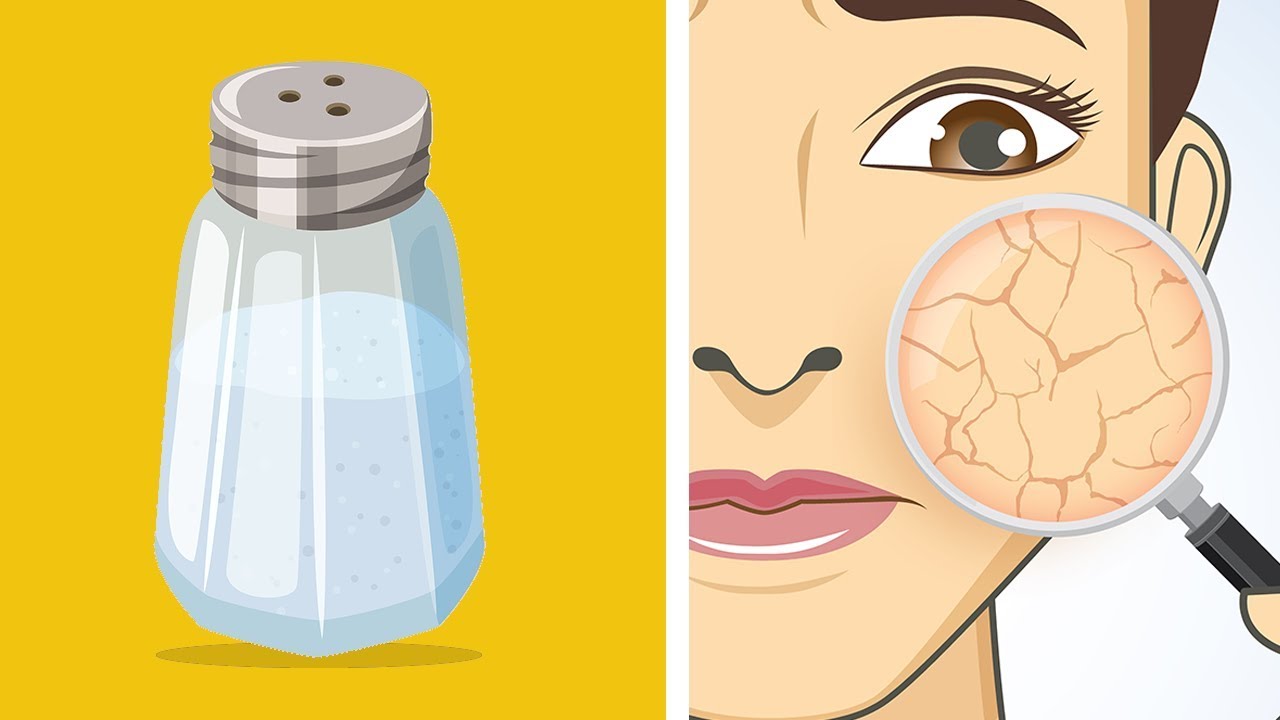6 Signs That You Are Consuming Too Much Salt
Unfortunately, when it comes to salt, it is an extremely easy mineral to over-consume.
Not only is it found in almost every item off the grocery store shelf, but it is often found in fast food and restaurant meals as well.
The only way to really avoid consuming salt when you eat is to buy raw foods and cook them at home with no sauces, no added salt, and no broths.
However, it is important to note that salt is a mineral that your body needs, so you do need to consume it, but just like too much sugar, too much salt can lead to some serious health issues like hypertension, heart attacks, and edema.
Here are 6 signs that you are consuming too much salt.
1. You Cannot Quench Your Thirst: because your body has been built to regulate how much salt it needs, if you have too much of it, your body will try to flush out the excess.
This is what leads to frequent urination and a loss of calcium.
If you have too much salt, your body will demand that you drink more by increasing your thirst levels.
This is what causes your thirst to feel “unquenchable”.
2. Your Food Tastes Bland: the unfortunate thing about salt is that once you start putting it on your food, your taste buds get used to it.
Then when you have food without it, it seems extremely bland.
One way to combat this is to switch out your salt for spices, as this will give your taste buds something to look forward to without needing the extra salt.
3. You Are Swollen and It’s Uncomfortable: salt will cause you to retain water, which is what makes you swell up.
So one way to know if you’ve had too much salt is to watch whether you swell up after a meal.
If you do, this is a sure fire sign that you have consumed too much.
The solution here is to drink more water and cut back on foods with high salt content.
4. You Have Hypertension: high salt levels not only increase the amount of water that you retain but it increases the amount of water in your blood vessels/bloodstream.
This causes the blood to push more against your blood vessel walls which results in hypertension.
If you like to consume salt, make sure to get checked for hypertension as it often has no symptoms and can lead to serious cardiovascular issues like strokes and heart attacks.
5. You Crave “bad” Food: because healthy food isn’t as appealing as salty foods, if you get accustomed to always consuming salty foods, you won’t want to eat healthier options.
This will lead you to crave “bad” foods like processed lunch meat, bacon, and junk food.
6. You May Become Fatigued From Dehydration: when you over consume sodium, it can cause you to become fatigue due to dehydration.
Make sure that when you are consuming this mineral, you are drinking plenty of water to combat tiredness.
If you are experiencing any of the above signs, try cutting back on how much salt you put on your meals at home and reduce how often you head out for food.
If possible, experiment with spices to help yourself adapt to how bland your food will taste at first.
When in the grocery store, take a look at how much salt is listed on the nutrition information label and keep in mind that the average daily limit for salt intake is around 2,300 milligrams.
▶ Subscribe to the channel! – https://goo.gl/nJ8d6r
Royalty free Pictures from
www.pixabay.com
www.pexels.com
Royalty Free Music from
Audio Library – No Copyright Music



![[ID: aoKuDnot5ZA] Youtube Automatic](https://okumasaati.net/wp-content/uploads/2020/10/id-aokudnot5za-youtube-automatic-360x203.jpg)
![[ID: 8fgN3ntiSlg] Youtube Automatic](https://okumasaati.net/wp-content/uploads/2020/10/id-8fgn3ntislg-youtube-automatic-360x203.jpg)
![[ID: qfkMJnNklD0] Youtube Automatic](https://okumasaati.net/wp-content/uploads/2020/10/id-qfkmjnnkld0-youtube-automatic-360x203.jpg)
![[ID: zvsS_2e9mmE] Youtube Automatic](https://okumasaati.net/wp-content/uploads/2020/10/id-zvss2e9mme-youtube-automatic-360x203.jpg)
![[ID: wNZ-jHkmy7o] Youtube Automatic](https://okumasaati.net/wp-content/uploads/2020/10/id-wnz-jhkmy7o-youtube-automatic-360x203.jpg)
![[ID: lMGIz8a4iwk] Youtube Automatic](https://okumasaati.net/wp-content/uploads/2020/10/id-lmgiz8a4iwk-youtube-automatic-360x203.jpg)